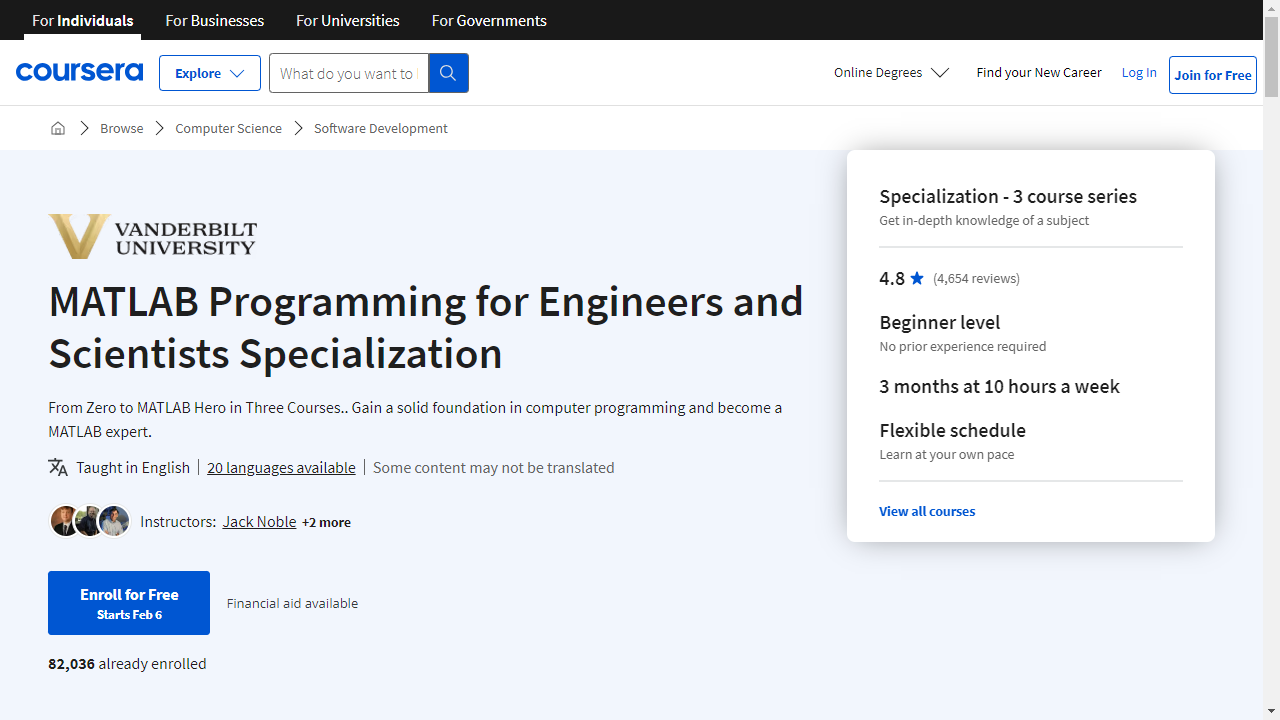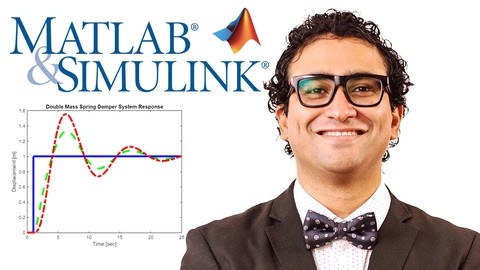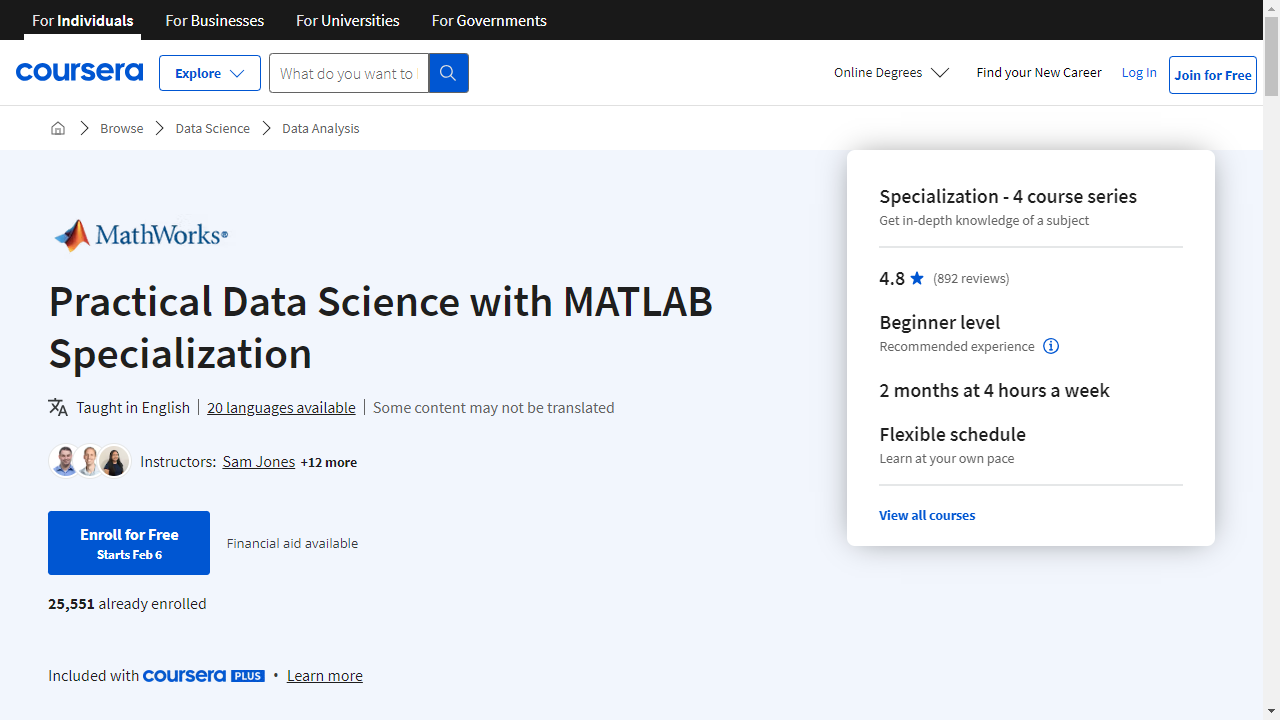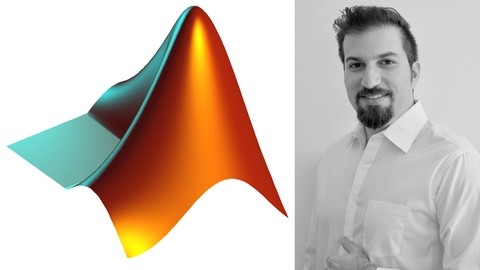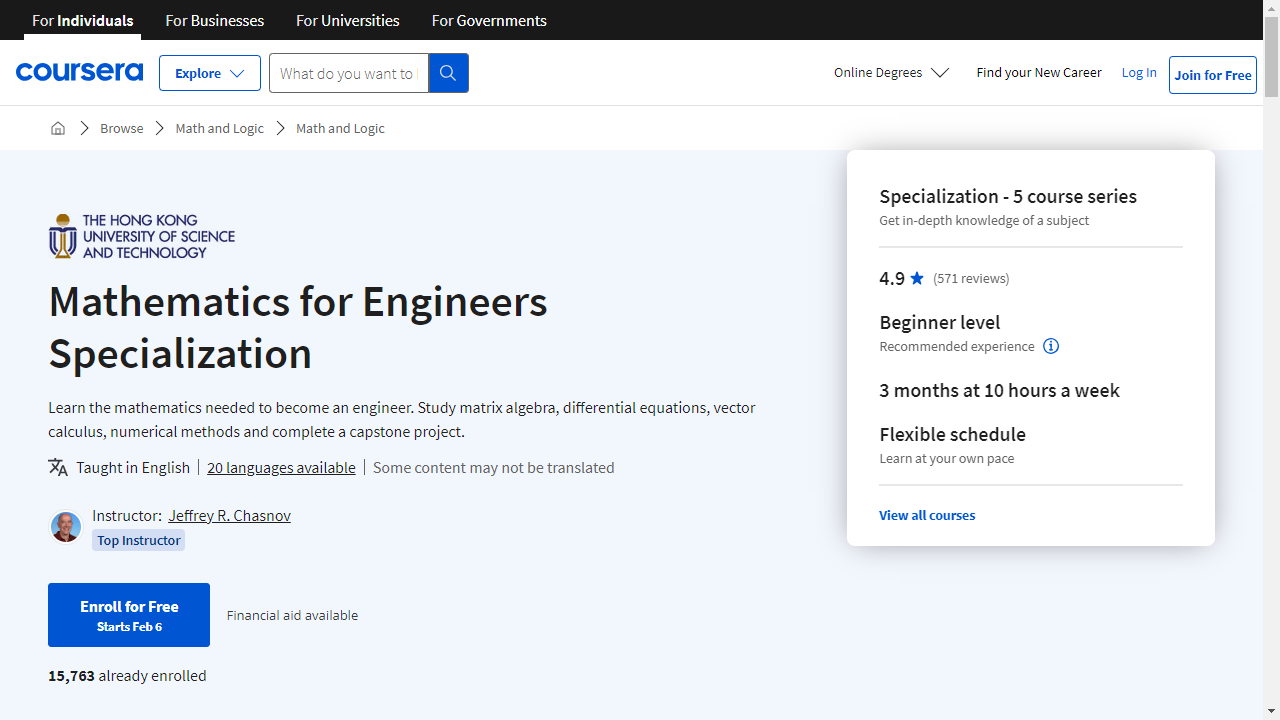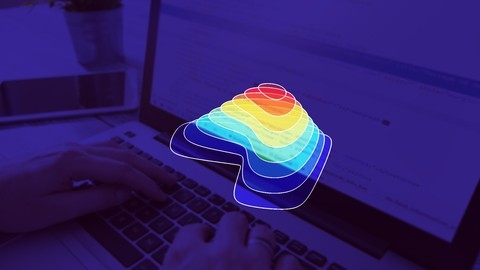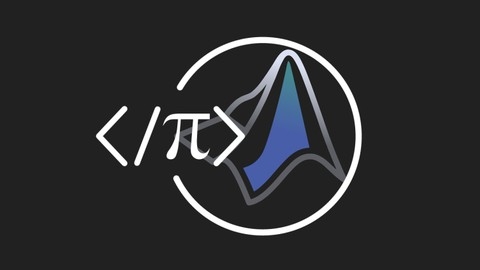MATLAB is a powerful programming language and environment widely used in engineering, science, and various industries for tasks ranging from data analysis and visualization to algorithm development and system simulation.
By learning MATLAB, you can gain valuable skills applicable to a wide range of fields, enabling you to solve complex problems, analyze data effectively, and develop innovative solutions.
Whether you’re a student, researcher, or professional, mastering MATLAB can significantly enhance your capabilities and open doors to exciting career opportunities.
Finding the right MATLAB course can be challenging, with numerous options available online, each catering to different learning styles and experience levels.
You’re looking for a comprehensive course that covers the fundamentals, provides hands-on practice, and equips you with the skills needed to apply MATLAB to real-world problems.
For the best MATLAB course overall, we recommend the MATLAB Programming for Engineers and Scientists Specialization on Coursera.
This specialization offers a structured learning path, starting with the basics and progressing to advanced topics like data analysis and machine learning.
The courses are taught by experienced instructors and feature engaging content, including video lectures, quizzes, and practical exercises.
It’s an excellent choice for anyone looking to build a solid foundation in MATLAB and its applications.
While this specialization is our top pick, there are other excellent MATLAB courses available, each with its unique strengths and focus areas.
Keep reading to explore our curated list of top MATLAB courses, including options for beginners, intermediate learners, and those seeking specialized knowledge in areas like Simulink, data science, and AI.
MATLAB Programming for Engineers and Scientists Specialization
Provider: Coursera
This Coursera specialization equips you with valuable MATLAB programming skills applicable to engineering, science, and various fields.
You begin your journey with “Introduction to Programming with MATLAB,” covering fundamental programming concepts using MATLAB.
You’ll grasp variables, control structures, functions, data types, matrices, and file input/output, providing a solid programming foundation.
“Mastering Programming with MATLAB” elevates your skills, delving into advanced concepts like recursion, vectorization, and function handles, enabling you to write more efficient code.
You’ll explore object-oriented programming, MATLAB’s user interface design environment, and Live Scripts, empowering you to create interactive visualizations and documentation.
Finally, “Introduction to Data, Signal, and Image Analysis with MATLAB” focuses on real-world applications.
You’ll learn how to represent and manipulate signals, images, and data in MATLAB, mastering data visualization techniques, including handling high-dimensional datasets.
You’ll delve into machine learning methods for data classification and prediction and explore signal analysis and image processing, including filter design and frequency analysis.
MATLAB/SIMULINK Bible | Go From Zero to Hero + ChatGPT!
Provider: Udemy
This course is designed to take you from knowing nothing to being an expert in MATLAB and SIMULINK.
You’ll begin with the fundamentals, learning how to generate and display sine waves.
You’ll then progress to more advanced topics, such as simulating a mass-spring-damper system, a fundamental concept in engineering.
This course teaches you by having you work on practical projects.
For instance, you’ll build a battery model using Excel, lookup tables, and “if” conditions within SIMULINK.
You’ll also learn how to use Laplace transforms, a mathematical tool that allows you to model systems in the S-domain.
This course doesn’t just stop at the basics.
You’ll also delve into control systems, a critical aspect of many engineering applications.
You’ll learn how to build and fine-tune PID controllers, which are essential for regulating systems like mass spring dampers and even DC motors.
You’ll even get to design an adaptive cruise control system, a popular feature in modern vehicles, and discover how to model a DC motor’s position control.
Plus, you’ll get a solid introduction to artificial intelligence (AI), including deep learning (DL) and artificial neural networks (ANNs).
The course even covers how to use ChatGPT, a powerful AI tool, to help you code more effectively.
You’ll learn how to use it to find code syntax, get help with debugging, and even find useful learning resources.
Practical Data Science with MATLAB Specialization
Provider: Coursera
You want to become proficient in data science using MATLAB?
The “Practical Data Science with MATLAB Specialization” on Coursera will guide you through a structured learning experience.
This specialization consists of four courses, starting with “Exploratory Data Analysis with MATLAB,” where you’ll learn how to import, clean, visualize, and analyze data using MATLAB’s interactive features.
You’ll discover how to extract insights from raw data and present them clearly using tools like live scripts.
Next, you’ll advance to “Data Processing and Feature Engineering with MATLAB.”
This course focuses on refining your data preparation skills.
You’ll learn techniques for merging datasets, handling missing values, and preparing text, audio, and image data for analysis.
This stage is crucial for ensuring the accuracy and reliability of your data analysis.
“Predictive Modeling and Machine Learning with MATLAB,” the third course, introduces you to the fascinating world of predicting future outcomes.
You’ll learn how to choose, train, and evaluate different machine learning models using MATLAB.
You’ll become comfortable with concepts like cost matrices and understand how to optimize your models for specific goals.
Finally, the “Data Science Project: MATLAB for the Real World” capstone project lets you apply all the knowledge and skills you’ve gained throughout the specialization.
You’ll work on a real-world data science project, from data exploration and processing to model building and presenting your findings.
This practical experience solidifies your understanding of the data science process and showcases your expertise to potential employers.
Become a Good Matlab Programmer in 30 days
Provider: Udemy
This Udemy course guides you from the basics of Matlab to more complex programming.
You begin by learning the platform, becoming comfortable with the user interface, and discovering how to save your work.
You then move on to the heart of Matlab: using variables, matrices, and vectors.
You’ll master mathematical operations with these data structures, giving you the foundation to write effective programs.
The course then introduces essential engineering functions, empowering you to tackle complex problems involving differentiation, integration, and limits.
You learn to present data visually by creating graphs and plots, a crucial skill for analysis and communication in any field that utilizes data.
The course then introduces programming fundamentals like loops and conditions.
These concepts let you build programs that can make decisions and automate tasks.
To analyze real-world data, you learn how to import information from Excel, a powerful tool for any aspiring programmer or data analyst.
Don’t think this course stops at the basics.
You also explore intermediate and advanced Matlab programming concepts.
You will dive into working with files, a crucial skill for managing and manipulating data.
You also learn about creating and using scripts and functions, which streamlines your workflow and allows you to build more sophisticated programs.
You will become comfortable using logical operations and crafting conditional statements, opening up a world of possibilities for creating dynamic and responsive programs.
You even get to enhance your plotting skills by learning advanced techniques to create informative and visually appealing graphs.
This course doesn’t just tell you about concepts; it lets you apply them.
You will work on practical projects that solidify your understanding of Matlab.
You could build a BMI calculator, a program that finds prime numbers, or even a sensor data reading application.
Throughout the course, you can access bonus materials to support your learning, including a handy list of frequently used Matlab functions.
Mathematics for Engineers Specialization
Provider: Coursera
You want to master MATLAB and become a better engineer?
This specialization takes you on a journey through five essential courses, starting with the basics of matrix algebra and progressing to advanced numerical methods, all while teaching you how to use MATLAB.
You’ll begin by diving into the fundamentals of matrices, systems of linear equations, and vector spaces.
You’ll learn about eigenvalues and eigenvectors, which are crucial for understanding linear transformations.
Next, you’ll conquer differential equations, exploring both ordinary and partial differential equations, which are key to modeling real-world phenomena.
Vector calculus is up next.
You’ll learn about scalar and vector fields, multidimensional integration, and essential concepts like gradient, divergence, and curl.
These are essential tools for understanding fields like electromagnetism and fluid mechanics.
To bring it all home, you’ll use MATLAB to tackle a real-world engineering challenge: simulating fluid flow around a cylinder.
This capstone project lets you apply your new knowledge and see your skills in action.
MATLAB Master Class: Go from Beginner to Expert in MATLAB
Provider: Udemy
This MATLAB Master Class acts as your personal guide, transforming you from a MATLAB novice to a confident user.
You’ll start with the basics – think of it like learning the layout of a new city.
You’ll explore the MATLAB interface, mastering key areas like the command window and workspace.
You’ll then learn how to work with variables, which are like the building blocks of your code.
You’ll discover how MATLAB treats these variables as matrices, opening up a world of possibilities for data manipulation.
Next, you’ll embark on a journey through essential mathematical operations.
You’ll grasp basic arithmetic, then level up to more advanced functions.
Imagine effortlessly finding prime numbers, calculating trigonometric functions, and even performing statistical computations – you’ll learn to do it all with MATLAB.
This journey equips you with the skills to tackle real-world problems using MATLAB’s powerful problem-solving and programming capabilities.
But the adventure doesn’t stop there.
The course delves into more complex data structures.
Think of it like upgrading your toolbox – you’ll learn about cells, tables, and structures, enabling you to organize and analyze data more effectively.
With these tools at your disposal, you’ll be ready to unlock the exciting realms of machine learning and data science.
You’ll explore algorithms like KNN, Naive Bayes, and Decision Trees, gaining the ability to build predictive models.
Finally, you’ll step into the world of automation, learning how to control your computer using MATLAB.
You’ll even explore how to send emails and interact with files automatically – imagine the possibilities!
The course also introduces you to regular expressions, a powerful tool for pattern matching, and guides you through creating your own user-friendly MATLAB applications.
Master MATLAB through Guided Problem Solving
Provider: Udemy
This MATLAB course is designed to take you from beginner to expert through hands-on problem-solving.
You start by learning the ropes – creating, editing, and organizing your code.
Think of it like setting up your workshop.
The course then guides you through vectors, matrices, and how to handle text, even teaching you to create dynamic HTML code within MATLAB.
Imagine translating complex mathematical formulas into elegant lines of code.
This course teaches you how to write code for everything from trigonometry functions and Gaussian distributions to more complex concepts like Laplace, log-normal distributions, and the sigmoid function – a cornerstone of machine learning.
You’ll also dive into the world of data visualization.
Not just looking at numbers, but bringing them to life.
Learn to create stunning 2D and 3D plots, from simple line graphs to intricate surface plots and even animations.
Imagine creating a simulation of a ball bouncing around a figure or a square playfully chasing your mouse cursor.
This course doesn’t shy away from advanced topics either.
You’ll explore time series analysis, learning how to clean up messy data, filter out noise, and find hidden patterns.
You’ll delve into the frequency domain, using tools like the Fourier Transform to understand the building blocks of signals.
Think of it as listening to the individual notes within a complex piece of music.
You’ll even explore the fascinating world of fractals, creating intricate patterns like the Sierpinski triangle and the famous Mandelbrot set.
You’ll be able to use it to analyze data, visualize results, and build your own custom tools and applications.
Also check our posts on:
